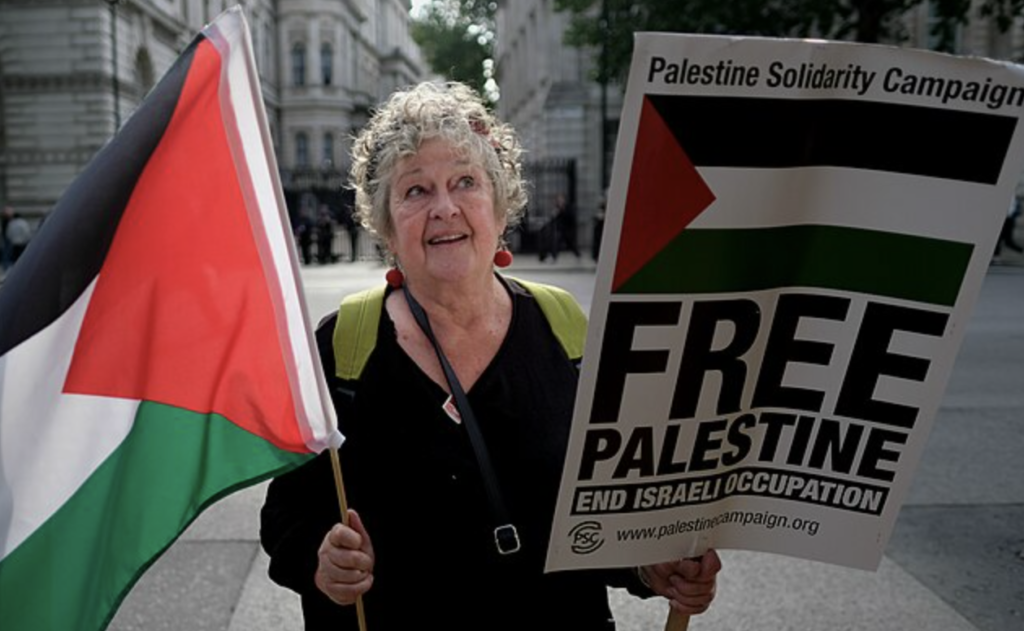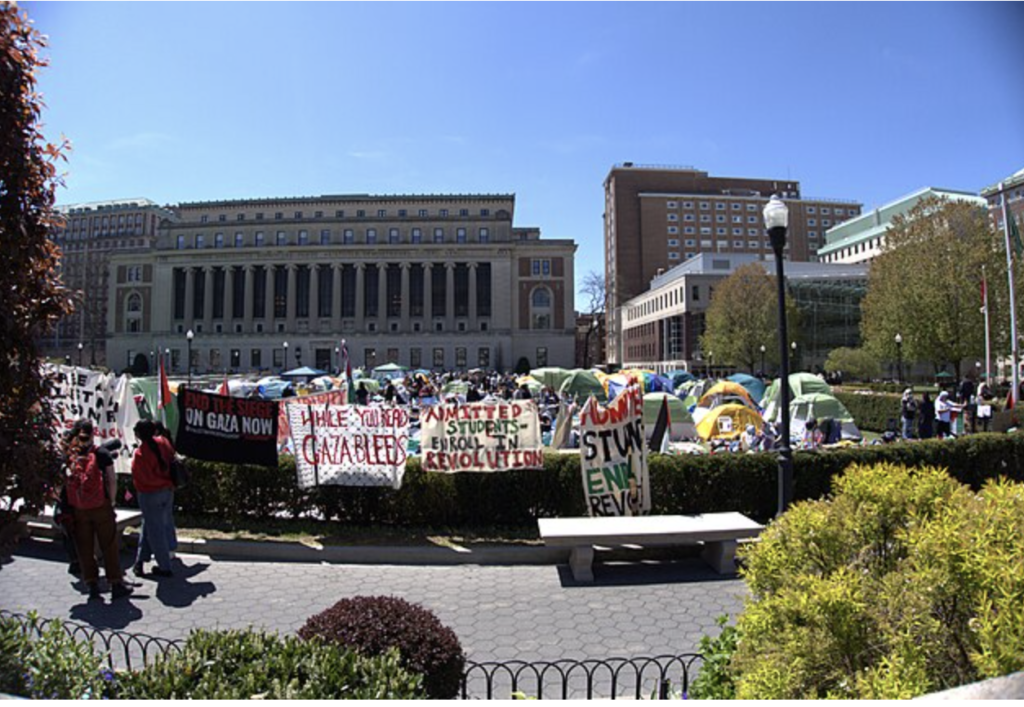Unfolding Realities: Three Key Developments from the Gaza Conflict

By: Ghassan Rubeiz / Arab America Contributing Writer
Domestic and external pressures are growing on Netanyahu’s war cabinet to accept the terms of a ceasefire deal being hammered out in Cairo.
No one knows how the war in Gaza will end or its ultimate impact on Palestinians, Israelis, and the entire region. Three emerging developments are noteworthy. Palestine has returned to the center of politics in the Arab world. Gaza will no longer be separated from the West Bank and East Jerusalem. A revolt, worldwide, on college campuses may be the birth of a third Palestinian Intifada.
Palestine returns to the center of Middle East politics
The war in Gaza has brought the Palestinian question to the center of Middle East politics. Empathy for the suffering in Gaza has turned every Arab into a Palestinian. Arab rulers have also rallied to support the Palestinian cause, not out of shame or guilt, but out of fear of local street uprisings. The fate of the Palestinians, a topic long sidelined, has emerged as a key point in the analysis of Middle Eastern affairs.

Gaza’s future is linked to greater Palestine
The path toward a united Palestine has been opened. The war has effectively suppressed Israel’s “divide and rule” policy that isolated Gaza from the West Bank and East Jerusalem. In 2006, Israel separated Gaza from the West Bank, after Hama’s candidates won a fair and free Palestinian national election. With US backing, Israel denied the legitimacy of the election and opposed the transition of power to Hamas. Hamas’s forces fought with Fatah, the party of the Palestinian Authority. Hamas won the fight and took charge of Gaza.
Immediately Israel placed Gaza under siege. With air power, it isolated the strip from the West Bank and East Jerusalem, geographically, politically, and economically. Gaza gradually turned into an open-air prison. In later years, to keep the Palestinians divided- and poorly represented- Netanyahu even helped funnel financial support from Qatar to Hamas.
For seventeen years Palestinians have been ruled by two authoritarian regimes: Hamas in Gaza and the Palestinian Authority in the West Bank. Gaza is now in ruins, unlivable and ungovernable. Israel’s policy of isolating Gaza has backfired. Most sensible scenarios about the future of Gaza have called for its return to what will be the future, united Palestine. Hopefully, Palestine will soon be accepted as a full member state in the United Nations.

Campus revolts create a Global Intifada
The mid-April campus revolt, which started at Columbia University, was inspired by the Palestinian “Boycotts, Divestments, and Sanctions,” (BDS) movement and South Africa’s anti-apartheid initiative. The BDS calls for nations and institutions to cut relations with Israeli settlement communities in the West Bank and East Jerusalem. Israel has managed incrementally to limit the impact of the BDS especially in Europe and the US. Through Israeli political pressure, BDS initiatives have been suppressed by law in some European countries and in many US locations. But, despite politically engineered legislative obstacles the BDS has survived.
From American campuses to universities around the world, the Gaza war has energized students to demand ending ties with Israel through Boycott, Divestment, and Sanctions. No group has sufficiently realized the significance of war crimes on children than the young populations of the globe.

In the past, Palestinians in the occupied territories have launched two initiatives of resistance, the first and second intifada. The first, in 1987, was non-violent and productive; the second, in the early 2000s, was bloody and brutally punished by Israel.
The most energetic form of resistance for Palestine so far has been the university students’ protests which rallied along the spirit of the BDS movement. Palestinians of the homeland have embraced the campus uprisings and recognized the heroic efforts of Arab and Jewish students in it. Will the global student protest become the foundation of the third Palestinian intifada?
Time will tell. Dylan Saba asserts that: The protestors are building on decades of struggle for Palestine and pulling us all into a radically new future. Suddenly, he adds: history is speaking with new gusto. (thenation.com)
This Palestine-focused, student revolt has a good chance of succeeding. It has empowered the Palestinians by generating international solidarity and connecting their resistance to a universal struggle for justice. It has provided a model for cooperation between Arabs and Jews. The active participation of Jewish students in the campus demonstrations will ultimately strengthen Arab and Jewish cooperation inside Israel. The third Intifada has a good chance of changing Israeli politics and offering Palestinians hope.
With or without Hamas, it will be difficult for Israel to manage the resistance to Occupation. With or without a ceasefire, it will be difficult for Israel to forget Gaza or escape its war crimes.
Ghassan Rubeiz is the former Middle East Secretary of the World Council of Churches. Earlier he taught psychology and social work in his country of birth, Lebanon, and later in the United States, where he currently lives. For the past twenty years, he has contributed to political commentary and delivered occasional public talks on subjects related to peace, justice, and interfaith. You can reach him at rubeizg@gmail.com
The views and opinions expressed in this article are those of the author and do not necessarily reflect the position of Arab America. The reproduction of this article is permissible with proper credit to Arab America and the author.
Check out our Blog here!



